Зарегистрируйтесь на getAbstract, чтобы получить доступ к этому краткому изложению.
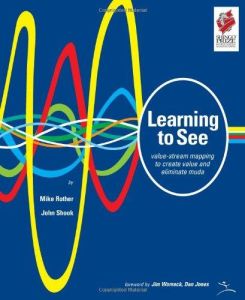
Зарегистрируйтесь на getAbstract, чтобы получить доступ к этому краткому изложению.
Mike Rother and John Shook
Learning to See
Value Stream Mapping to Add Value and Eliminate Muda
Lean Enterprise Institute, 1999
Что внутри?
Learn to see your facility as a value stream manager sees it.
Recommendation
Lean production is the gold standard in production systems, but has proven famously difficult to implement in North America. Mass production relies on large inventories, uses “push” processes and struggles with long lead times. Moving towards a system that eliminates muda (“waste”) caused by overproduction, while challenging, proves necessary for improved efficiency. Often overlooked, value stream mapping is the essential planning stage for any Lean transformation. In Mike Rother and John Shook’s essential guide, you follow the value stream mapping undertaken for Acme Stamping, for its current and future state. Fully illustrated and well-organized, Learning to See is a must-see for the value stream manager.
Summary
About the Authors
Mike Rother introduced the widespread business practices of Value Stream Mapping and Toyota Kata (Improvement Kata and Coaching Kata). John Shook became Toyota’s first American kacho (manager) in Japan and was senior American manager with the Toyota Supplier Support Center in Lexington, Kentucky, assisting North American companies to adopt the Toyota Production System. The Lean Enterprise Institute, Inc. (LEI) spreads Lean thinking and practice, and is a founding member of the Lean Global Network.









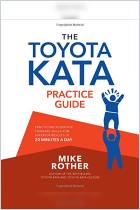



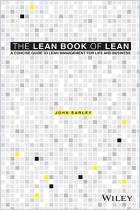


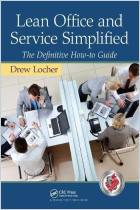

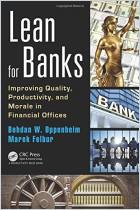




Comment on this summary